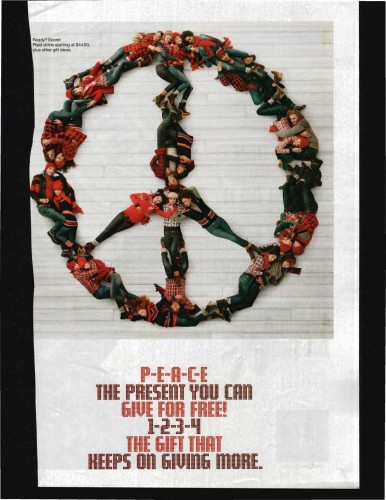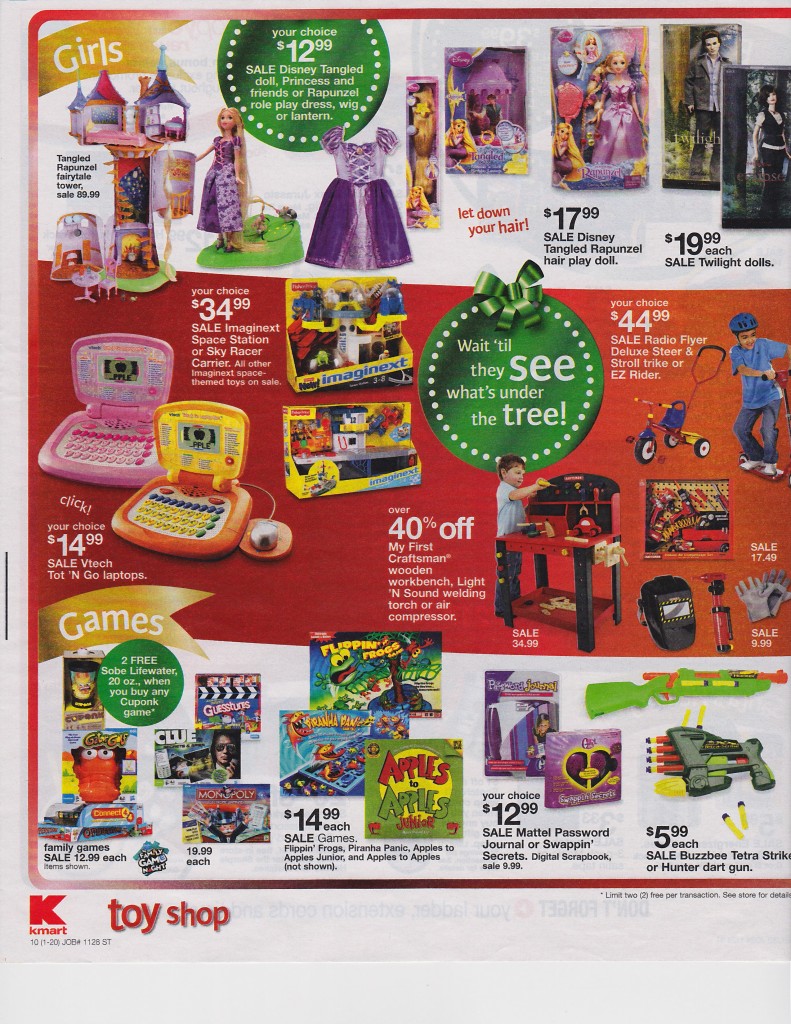I saw this ad last year but forgot to post it. What I find interesting is the way that “peace” has been both stripped of any real meaning and presented as something easy to achieve:
So while a plaid shirt might cost you $44.50, peace is free. This makes sense only if “peace” has been turned into a completely apolitical feel-good abstraction, as opposed to an end result of social and political processes that require effort and may or may not be particularly cheap. But “peace” is, here, entirely empty of political meaning, so much so that the company could use the word in an ad without worrying that they would be accused of making a political statement about, say, either of the two wars the U.S. is currently engaged in, or the Israel/Palestine conflict, or any number of other situations that a politicized meaning of peace might bring to mind.




























